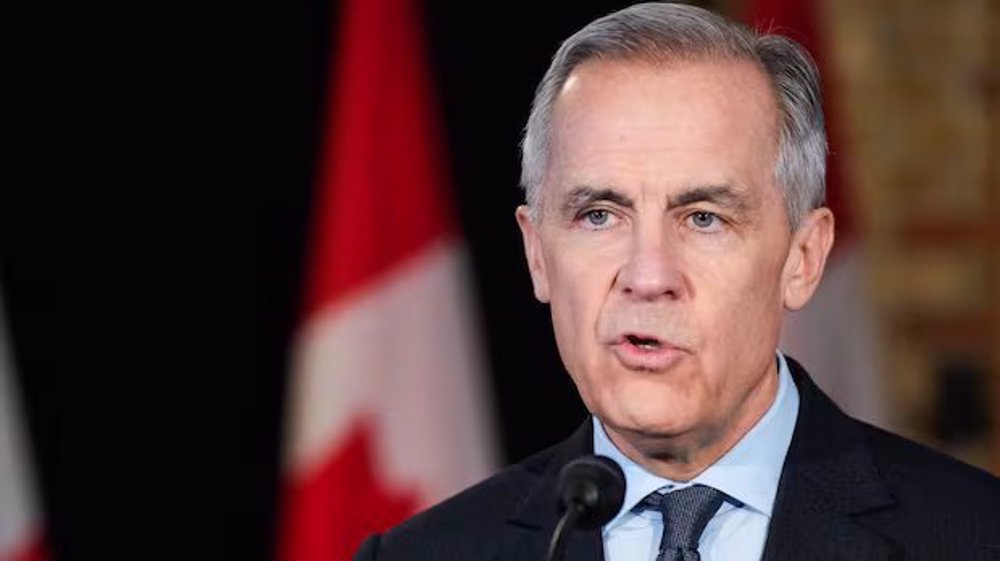US deep state won’t allow a change in aggressive interventionist policy: Ron Paul
The permanent US government will not allow a change in aggressive American interventionist foreign policy, particularly when it comes to Russia, former congressman and presidential candidate Ron Paul has said.
In his latest column published on Monday, the founder of the Ron Paul Institute for Peace and Prosperity wrote, “The most shocking thing about the House impeachment hearings to this point is not a ‘smoking gun’ witness providing irrefutable evidence of quid pro quo. It’s not that President Trump may or may not have asked the Ukrainians to look into business deals between then-Vice President Biden’s son and a Ukrainian oligarch.”
“The most shocking thing to come out of the hearings thus far is confirmation that no matter who is elected President of the United States, the permanent government will not allow a change in our aggressive interventionist foreign policy, particularly when it comes to Russia,” he pointed out.
“Even more shocking is that neither Republicans nor Democrats are bothered in the slightest,” he continued.
Paul quoted the example of Lt. Colonel Vindman, saying that “he did not come forth with first-hand evidence that President Trump had committed any ‘high crimes’ or ‘misdemeanors.’ He brought a complaint against the President because he was worried that Trump was shifting US policy away from providing offensive weapons to the Ukrainian government!”
Vindman was concerned over “influencers promoting a false narrative of Ukraine inconsistent with the consensus views of the interagency.”
Paul wrote that “consensus views of the interagency is another word for deep state.”
Democrats in the US House of Representatives are actively preparing for the next step in their eight-week impeachment investigation of Trump.
Democratic Party lawmakers in the lower chamber of Congress expect a busy December that will be filled with proceedings and public hearings, and a likely vote to impeach the Republican president on the House floor by Christmas Day, according to CNN.
Three House committees are writing a report detailing their findings, which is expected to serve as the basis for an impeachment resolution, or “articles of impeachment”.
Democrats say they are still debating the size and scope of the articles, which are likely to focus on abuse of power, obstruction of justice, obstruction of Congress and bribery.
Impeachment begins in the House. If the House approves articles of impeachment, a trial is then held in the Senate. House members act as the prosecutors; the senators as jurors; the chief justice of the Supreme Court presides.
Democrats say they have not obtained crucial documents or spoken with several key officials because the White House and State Department have refused to comply with subpoenas.
Democrats have unsuccessfully sought testimony from White House Chief of Staff Mick Mulvaney, Secretary of State Mike Pompeo and former US national security adviser John Bolton, as well as Trump's personal attorney Rudy Giuliani.
House Democrats launched an impeachment inquiry against Trump in September after a whistleblower alleged the Republican president pressured Ukrainian President Volodymyr Zelensky to investigate former vice president Joe Biden and his son Hunter, who had served as a director for Ukrainian energy company Burisma.
The impeachment probe shifted to a public phase on November 13 after weeks of closed-door interviews in the House.
Israeli tank fires on Lebanese army during joint UN mission in south Lebanon: Report
Iran certain to deliver decisive response to Trump’s threats: Senior commander
Netanyahu skipped Davos amid arrest fears: Reports
VIDEO | West’s support for terror in Iran
VIDEO | Press TV's news headlines
More Europeans see Trump as 'enemy' than 'friend': Survey
Ukraine war talks begin in UAE as Russia repeats Donbas demand
Iran slams UNHRC session as illegitimate, says no submission to foreign pressure











 This makes it easy to access the Press TV website
This makes it easy to access the Press TV website